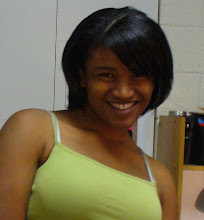I was posting a comment on another blog and my ending sentence was: Can't we all be critics with valid points? And that got me thinking.
I argued that critics, in a way, take away the opinion of the readers, because they tell you what to think and what to pull out of a text. There is no room for interpretation and the reader is stuck "learning" only within the abilities of the teacher or critic. What if we gave everybody a clean slate with no critic and let people think what they want about a certain text? If a 100 people read it then we would have 100 different veiw points. And that is beauty. With the various opinions couldn't we exaust most, if not all, the possible meanings of a text? Of course we could. Take for example a high school classroom where a teacher presents a novel and then explains what the author meant, the point, and the significance of each chapter. No group discussions, no room to argue, just taking notes and memorising of the information. Or, we could enter a graduate class where everyone is given a topic and are free to express whatever they got out of it, turning it into a discussion or debate among classmates. There is so much more to learn and accomplish in this setting. This point, is what post-structuralists were trying to make. Barry talks about Roland Barthes' essay The Death of the Author: "...the essay makes a declaration of radical textual independence: the work is not determined by intention, or context. Rather, the text is free by its very nature of all such restraints. Hence, as Barthes says in the essay, the corollary of the death of the author is the birth of the reader" (pg 63-64). Clearly the "professional" critic is the reader, which leads me back to my ending and then beginning question: Can't we all be critics?
Subscribe to:
Post Comments (Atom)

In a way we certainly can all be critics. That also ties into a comment I made (I think on the same blog entry you did :) ) about the qualifications for a critic, beyond just being influential. I suppose we can argue from the point that the established critics provide ideas that we may not have considered on our own. That by exploring their ideas, agreeing or even disagreeing with them, we are expanding our own methods of analysis by confronting others` ideas. I think sometimes we forget that we are allowed to argue with the critic and not just passively treat their ideas as gospel.
ReplyDeleteI seem to be commenting on a blog from last week's discussion of post-structuralism - but I think this is exactly the type of discourse that ought to happen when we talk about Foucault and his "totalitarian theories" (Foucault 129). He argues that, though these theories offer "useful tools for local research," indeed, "the attempt to think in terms of a totality has in fact proved a hindrance" (129). And, Jameson agrees that Foucault's theory of genealogy is effective proof that their is not just one "linear" ("Postmodern 269) way of thinking about history (which is, of course, the subtext of all literature in one way or another). Which, I guess, makes us a part of an entire family of critics
ReplyDelete